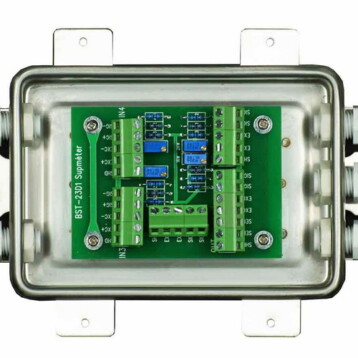The landscaping industry has been running on traditional vans for decades, knowing and facing multiple problems like fuel costs, high maintenance, and environmental damage. It has now undergone a profound transformation driven by the surge of electric vehicle adoption.
The market adoption to EV is expected to touch 30.8 billion in 2030. EVs are not only reshaping the fleet management business but also aligning the businesses with some very relevant goals, like-
- Sustainability
- Reduced operational costs
- Matching with customer expectations for eco-friendly services.
This shift is more about a technological upgrade and a strategic leap towards a cleaner and more efficient future for fleeting businesses.
Let’s zoom in on how EV vans are transforming landscaping fleet management without incurring extra costs.
Why are EV Vans perfect?
Range and efficiency
Landscaping businesses generally operate within a localized area, which allows EV vans to cover a range of 100-300 miles daily. These vehicles offer quite the operation, which is a bonus for residential areas and noise-sensitive zones.
Cargo space
Modern EV vans are designed with ample cargo space to accommodate all landscaping tools, equipment, and supplies. The models also allow customization, which enables businesses to tailor the vehicle to specific needs, like shelving, racks, or refrigeration units for plants.
Reduced maintenance
Electric vehicles have fewer moving parts than traditional internal combustion engine vehicles. This translates to lower maintenance costs, fewer repairs, and minimal downtime.
Future-proofing business
The world is rapidly moving towards decarbonization, and EV vans are just the right choice for landscaping businesses. Early adoption ensures that your business stays ahead of competitors while adapting to the rapidly evolving market.
Wireless Charging Electric Bus Tested in Germany
Cost Benefits of EV Vans
Lower fuel costs
Switching to electricity from gasoline has resulted in fuel savings. On an average, charging an EV costs a fraction of what it takes to fill a gas tank.
Tax incentives
Governments worldwide offer tax credits, rebates, and grants to businesses adopting EVs. Landscaping companies can use these as a financial incentive to reduce the overall upfront costs and improve ROI.
Long term savings
While the initial investments in EV vans are high, the long-term savings on fuel, maintenance, and potential carbon offsets the credits while making them financially sound.
Environmental Impact
Carbon footprint reduction
EV vans do not produce tailpipe emissions, significantly reducing the carbon footprint of landscaping operations. The shift towards EVs supports global efforts to combat climate change and sustainability-focused initiatives.
Enhanced Brand name
Customers love businesses that put the environment first. Landscaping businesses that use EV vans can market themselves as eco-friendly, attracting environmentally conscious clients and gaining a competitive edge.
Compliance
As governments have strict regulations for emission standards, transitioning to EV vans helped fleeting businesses to stay ahead of regulations. This removed the scenario of penalties and helped businesses position themselves as industry leaders.
What to Expect from Good Landscape Maintenance Services?
Operational Advantage of EV Vans in Fleet Management
Fleet Tracking and Optimization
Integration of sound fleet management software like Field Promax makes operations simple by offering real-time tracking, scheduling, and maintenance reminders. This ensures EVs operate smoothly at peak times, reduce downtime, and improve service delivery.
Centralized charging solutions
Landscaping fleets can install centralized charging stations at their facilities. This streamlines energy management and ensures vehicles are ready for daily operations. Innovation in fast-charging technology has also significantly reduced downtime and wait periods.
Data-driven insights
Modern EV vans have advanced telematics systems, which provide valuable insights into driving habits, energy usage, and maintenance needs. The data produced is used in landscaping businesses to optimize routes, reduce energy consumption, and speed up delivery.
Challenges in EV Adoption
Upfront costs
Challenge—The initial purchase price of EV vans is typically higher than that of traditional internal combustion engine vehicles. This is a significant challenge for smaller landscaping businesses.
Solution- To address this challenge, the business can:
- Explore government incentives- The government offers tax credits, grants, and rebates specifically for EV purchases.
- Leasing options—Leasing EV vans has reduced the financial burden by spreading costs over time, allowing the business to access the latest technology.
- Green financing programs—Most financial institutions are providing loans and other financial solutions, especially for small businesses transitioning to EVs. These measures make the adoption of EV vans more accessible and financially manageable.
Charging infrastructure
Challenge- Although public EV charging stations have increased, landscaping businesses may not always find them conveniently located near the operational zones. This has caused downtime and logistical challenges.
Solution- This challenge is cumbersome therefore has multiple solutions:
- On-site charging stations- Landscaping businesses can invest in centralized charging stations at their main facilities. This ensures reliable access to the power.
- Portable charging solution- Mobile chargers offer flexibility for remote job sites and significantly reduce dependency on public infrastructure.
- Partner with local networks- Collaborating with charging networks offers exclusive access to nearby stations, too, at discounted rates.
Range anxiety
Challenge- Landscaping businesses worry about EV vans’ batteries depleting during busy operating days. The anxiety often surges in areas with limited charging infrastructure, which can deter adoption.
Solution- There are three main ways to address this challenge:
- Use of Advanced Route Planning Tools- GPS systems to be integrated with telematics. This optimizes routes and ensures efficient energy usage and fewer unnecessary miles.
- Fleet monitoring software- Some very efficient software, like Field Promax, can track vehicle battery levels in real-time. This helps businesses proactively manage their charging needs.
- Adopting models- EV vans vary according to operational demands. Battery levels differ a bit in different vans, therefore making longer ranges standard choice for most of the business.
These strategies help businesses to operate confidently without losing power in the mid-day.
Initial hesitation to change
Challenge- Employees or management may resist the shift to EV vans due to unfamiliarity with the technology or skepticism about its advantages.
Solution- These three routes have helped more than 70% of traditional users make the shift-
- Educate and Train—Conduct workshops and training sessions to guide employees through EV technology. Highlight all the relevant benefits and operations.
- Pilot program- Introduce a small number of EV vans to demonstrate efficiency and gather feedback from the team.
- Highlight cost- Prepare the data on long-term savings and reduced environmental impact. This build support and enthusiasm for the transition.
Top Tips For Starting Your Own Gardening Business This Spring
Role of Technology in Optimizing EV Landscaping Fleets
- Streamlining operations: Technology provides the best support in EV integration to ensure its success in the landscaping business. Fleet management software like Field Promax and other connected systems provide real-time vehicle tracking solutions, optimize routes, and monitor energy usage.
- Route optimization: Advanced GPS and AI-based tools help businesses determine efficient routes for daily operations, reducing travel time and energy consumption.
- Predictive maintenance: The telematics system detects potential issues in EV vans before they cause downtime. It monitors battery health, tire pressure, and motor performance so that the business can schedule maintenance proactively.
Some customer-centric benefits
Eco-friendly appeal
Customers today are increasingly conscious of environmental impact. Businesses that demonstrate sustainability win the competitive advantage. EV vans in landscaping fleets sync well with this trend. They offer a cleaner, quieter, and greener service experience.
Silent operations
EV vans do not produce noise like traditional vehicles. This is advantageous in residential and urban areas where clients value low-noise operation during late afternoons and evenings.
Better air quality
By eliminating tailpipe emissions, landscaping businesses contribute to better air quality in local communities.
Green marketing opportunities
Businesses can leverage their EV adoption in marketing efforts, emphasizing their commitment to sustainability. Marketers can start a social media campaign, update their website, and communicate with customers highlighting eco-friendly aspects of the service, attracting like-minded customers.
Improved customer experience
EV vans have helped landscaping businesses deliver a better customer experience. With enhanced reliability and precision, the business can ensure timely arrivals and smooth service delivery.
Reliability
An advanced tracking system has helped businesses prepare accurate ETAs. Real-time updates on job progress and connected system access further enhance the customer experience.
Personalization
Data collected from an EV fleet system helps a business analyze data to offer personalized services to customers. Customers will receive customized maintenance schedules.
The Future of Landscaping Fleet Management with EV Vans
Battery Innovation
Advancement in battery technology has promised longer ranges, faster charging times, and improved durability, making EV vans an even more practical choice for landscaping fleets.
Autonomous driving
As autonomous EV vans enter the market, the landscaping businesses further streamline operations. These vans provide excellent delivery of tools to job site access and reduce overall labor costs.
Integration with Renewable Energy
Pairing Ev vans with renewable energy sources like solar-powered charging stations offers a complete eco-friendly solution. This synergy not only reduces operating costs but also strengthens the company’s commitment to sustainability.
Conclusion
Electric vans are revolutionizing the landscaping industry by offering cost, efficiency, environmental benefits, and operational advantages. Companies adopting EVs are positioning themselves as fast-forward learners in the competitive market, which gains customers’ trust and loyalty.
The transition to EV vans, combined with robust management tools of Field Promax, ensures that the landscaping business remains agile and efficient while contributing to a greener future.
Field Promax helps in real-time equipment tracking, log service history and equipment maintenance check-ups.
By embracing this transformation, the landscaping industry can pave a smooth path toward sustainable growth and long-term success.










